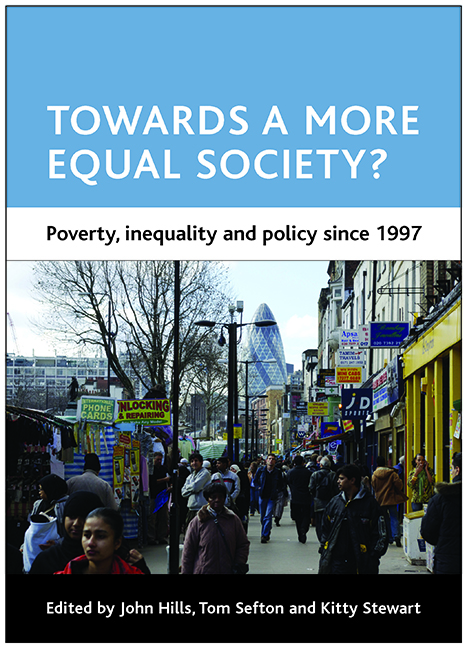two - Poverty, inequality and redistribution
Published online by Cambridge University Press: 22 January 2022
Summary
Introduction
The previous Conservative government presided over a period of sharply rising income inequality: between 1979 and 1996-97, the median income of the richest tenth increased by more than 60% in real terms, but that of the poorest tenth rose by just 11% (or fell by 13% if incomes are measured after housing costs). Ultimately, many people's judgement of New Labour will rest on whether it has made progress towards reversing this trend towards greater inequality. This chapter focuses specifically on what has happened to income inequality and poverty and on the impact of the government's tax-benefit and spending policies, which are its most direct instrument for influencing the distribution of incomes.
New Labour's emphasis has been firmly on raising the living standards of the poorest, encapsulated in Blair's historic pledge in 1999 to end child poverty within a generation, rather than on seeking to reduce income inequality. Poverty was, however, to be defined in relative terms – and specifically in relation to median income, which rises over time in line with living standards in the rest of society. Although New Labour has rarely emphasised the redistributive impact of its tax-benefit policies, these have always been a vital component of its anti-poverty strategy in combination with a range of other policies designed to improve the life chances of the poorest, including the early years agenda, targeted measures to raise educational standards in the most deprived neighbourhoods, and welfare-to- work programmes (see Chapters Three, Four and Five).
New Labour's tax-benefit policies
From 1998, every Budget has included a section on ‘building a fairer society’ (or variants of this) from which it is possible to identify a fairly consistent set of principles underpinning the government's efforts to tackle poverty through the tax-benefit system. The first theme is work as the best route out of poverty and, therefore, the need to ensure that work pays. In its first Budget, New Labour announced its intention to introduce a National Minimum Wage (which came into effect in April 1999) as well as a more generous system of in-work tax credits for low-paid workers.
- Type
- Chapter
- Information
- Towards a More Equal Society?Poverty, Inequality and Policy since 1997, pp. 21 - 46Publisher: Bristol University PressPrint publication year: 2009
- 2
- Cited by



